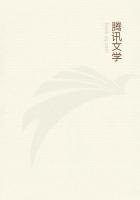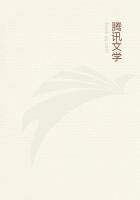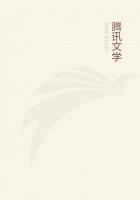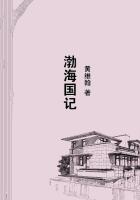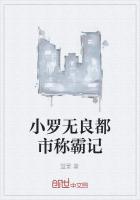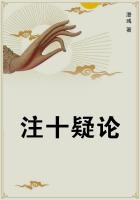Quite naturally he found himself at a mangle, feeding starched cuffs. But as he fed he noticed figures printed in the cuffs. It was a new way of marking linen, he thought, until, looking closer, he saw "$3.85" on one of the cuffs. Then it came to him that it was the grocer's bill, and that these were his bills flying around on the drum of the mangle. A crafty idea came to him. He would throw the bills on the floor and so escape paying them. No sooner thought than done, and he crumpled the cuffs spitefully as he flung them upon an unusually dirty floor. Ever the heap grew, and though each bill was duplicated a thousand times, he found only one for two dollars and a half, which was what he owed Maria. That meant that Maria would not press for payment, and he resolved generously that it would be the only one he would pay; so he began searching through the cast-out heap for hers. He sought it desperately, for ages, and was still searching when the manager of the hotel entered, the fat Dutchman. His face blazed with wrath, and he shouted in stentorian tones that echoed down the universe, "I shall deduct the cost of those cuffs from your wages!" The pile of cuffs grew into a mountain, and Martin knew that he was doomed to toil for a thousand years to pay for them. Well, there was nothing left to do but kill the manager and burn down the laundry. But the big Dutchman frustrated him, seizing him by the nape of the neck and dancing him up and down. He danced him over the ironing tables, the stove, and the mangles, and out into the wash-room and over the wringer and washer. Martin was danced until his teeth rattled and his head ached, and he marvelled that the Dutchman was so strong.
And then he found himself before the mangle, this time receiving the cuffs an editor of a magazine was feeding from the other side.
Each cuff was a check, and Martin went over them anxiously, in a fever of expectation, but they were all blanks. He stood there and received the blanks for a million years or so, never letting one go by for fear it might be filled out. At last he found it. With trembling fingers he held it to the light. It was for five dollars. "Ha! Ha!" laughed the editor across the mangle. "Well, then, I shall kill you," Martin said. He went out into the wash- room to get the axe, and found Joe starching manuscripts. He tried to make him desist, then swung the axe for him. But the weapon remained poised in mid-air, for Martin found himself back in the ironing room in the midst of a snow-storm. No, it was not snow that was falling, but checks of large denomination, the smallest not less than a thousand dollars. He began to collect them and sort them out, in packages of a hundred, tying each package securely with twine.
He looked up from his task and saw Joe standing before him juggling flat-irons, starched shirts, and manuscripts. Now and again he reached out and added a bundle of checks to the flying miscellany that soared through the roof and out of sight in a tremendous circle. Martin struck at him, but he seized the axe and added it to the flying circle. Then he plucked Martin and added him.
Martin went up through the roof, clutching at manuscripts, so that by the time he came down he had a large armful. But no sooner down than up again, and a second and a third time and countless times he flew around the circle. From far off he could hear a childish treble singing: "Waltz me around again, Willie, around, around, around."
He recovered the axe in the midst of the Milky Way of checks, starched shirts, and manuscripts, and prepared, when he came down, to kill Joe. But he did not come down. Instead, at two in the morning, Maria, having heard his groans through the thin partition, came into his room, to put hot flat-irons against his body and damp cloths upon his aching eyes.

